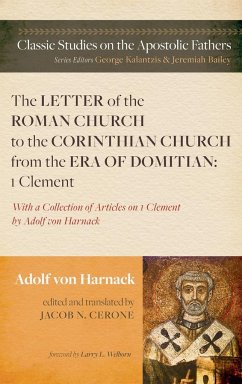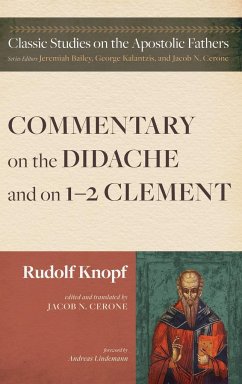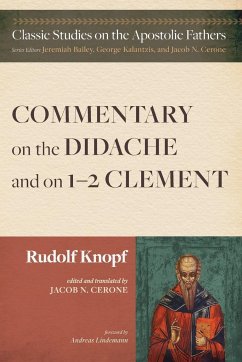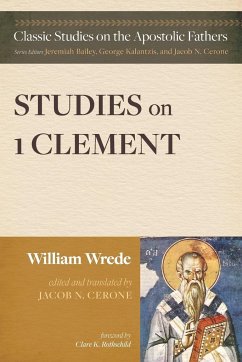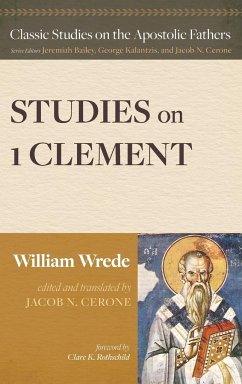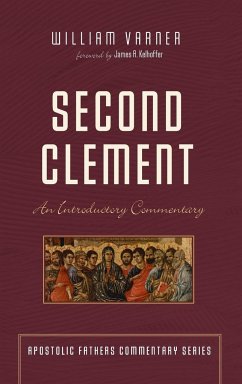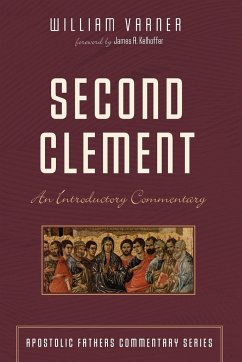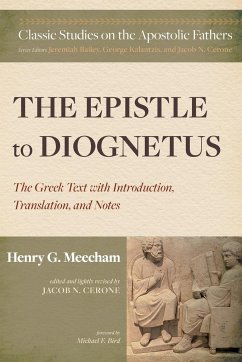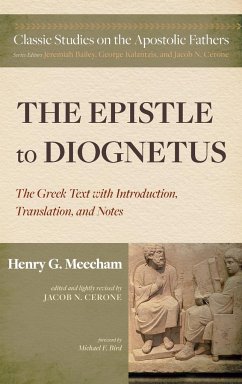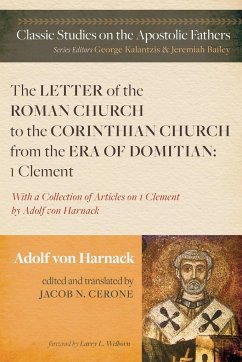
The Letter of the Roman Church to the Corinthian Church from the Era of Domitian
1 Clement
Herausgeber: Cerone, Jacob N.

PAYBACK Punkte
15 °P sammeln!
This farewell gift on 1 Clement to Harnack's students of church history was formative for studies of 1 Clement for several decades after its publication, and it remains an influential work even in contemporary discussions of this ancient letter. Harnack contends that 1 Clement is the most important witness to early Christianity, and that a close study of this work will place the reader upon the right path to better understand its later developments. Also included within this volume are four influential essays that Harnack wrote throughout his career pertaining to 1 Clement as well as a histori...
This farewell gift on 1 Clement to Harnack's students of church history was formative for studies of 1 Clement for several decades after its publication, and it remains an influential work even in contemporary discussions of this ancient letter. Harnack contends that 1 Clement is the most important witness to early Christianity, and that a close study of this work will place the reader upon the right path to better understand its later developments. Also included within this volume are four influential essays that Harnack wrote throughout his career pertaining to 1 Clement as well as a historical introduction and assessment of Harnack's work by Larry Welborn.





